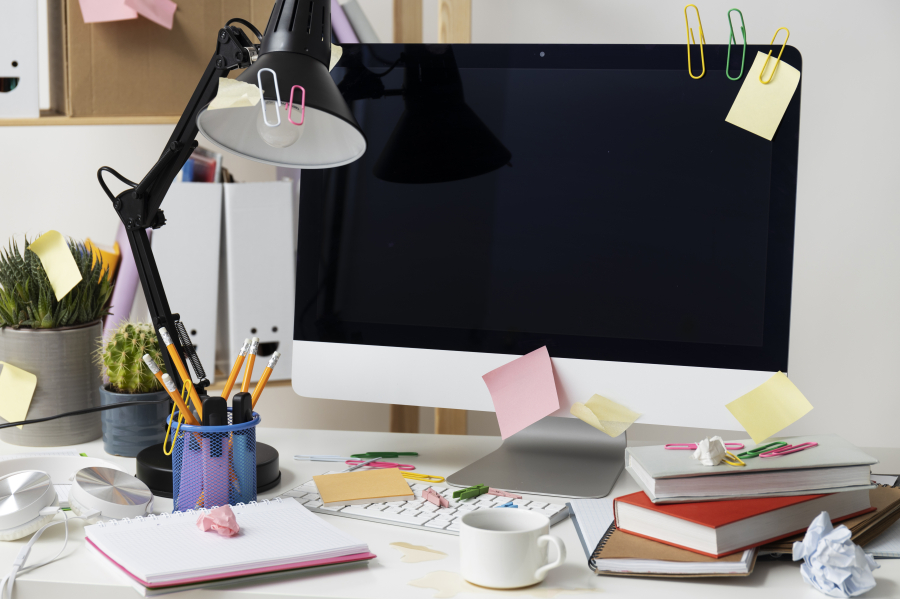How to Set Up a Home Office for Creative Work
Creating a productive and inspiring home office is essential for freelancers involved in creative work such as photography, graphic design, writing, and video editing. A well-designed workspace not only improves focus but also enhances the quality and efficiency of your work. This guide explores how to set up a home office that meets both functional and creative needs for freelancers.
Long Description
Why a Proper Home Office Matters for Creative Freelancers
For freelancers in the creative industry, the work environment plays a crucial role in performance. Unlike traditional jobs, freelance work often involves long hours, tight deadlines, and the need for uninterrupted creative flow. A cluttered or poorly arranged space can lead to distractions, creative blocks, or physical discomfort.
Having a dedicated home office designed with creativity and functionality in mind allows for:
Better time management
Enhanced focus and productivity
Clear work-life separation
Professional environment for client meetings (virtual or physical)
1. Choosing the Right Space
Start by selecting a space that is quiet and separate from household distractions. It doesn't have to be a full room — even a creatively converted corner can work if planned right.
Key considerations:
Natural lighting to enhance mood and reduce eye strain
Minimal foot traffic area
Adequate space for equipment and movement
2. Designing for Creativity
The look and feel of your workspace should inspire your creative process. Use color psychology, textures, and personal elements to make the space uniquely yours.
Ideas to consider:
Use calming colors like soft blues or greens for writers
Bold colors like orange or red can energize photographers and designers
Add artwork or mood boards to fuel inspiration
3. Ergonomic Furniture Setup
Invest in high-quality ergonomic furniture. This will prevent back and neck strain during long hours of work.
Essentials:
Adjustable office chair with lumbar support
Desk at the right height to avoid wrist and shoulder tension
Footrest or standing desk if needed
4. Lighting Setup for Visual Work
Creative freelancers like photographers, video editors, and designers need optimal lighting. Poor lighting can distort colors and lead to eye fatigue.
Tips:
Use a combination of natural light and adjustable LED desk lamps
Avoid harsh overhead lighting
Install blackout curtains for controlled lighting during shoots
5. Organizing Tools and Equipment
Clutter can interrupt creativity. Keep your tools and tech gear organized using dedicated storage units.
Organizational options:
Wall-mounted shelves
Drawer organizers for small gear
Cable management systems
Labelled bins for camera accessories or art supplies
6. Tech Essentials for Creative Work
Depending on your freelance niche, you’ll need specialized equipment. Always invest in tools that match the quality standards of your work.
Must-haves:
High-performance computer with ample storage and RAM
Backup drives or cloud storage
Noise-cancelling headphones
Graphic tablet or dual monitor for designers
Professional camera gear if you're a photographer
7. Creating Zones for Multifunctional Use
If your work involves different stages like ideation, execution, editing, and meetings, create physical or mental zones for each.
Examples:
Desk for computer-based tasks
Lounge chair for brainstorming and sketching
Mini studio area for product or portrait photography
Background setup for Zoom or client calls
8. Soundproofing and Acoustics
Noise distraction can kill creativity. Consider soundproofing or noise control solutions to maintain focus.
Suggestions:
Use rugs, curtains, or acoustic foam panels
Seal gaps in windows or doors
Use white noise machines or ambient playlists
9. Internet and Connectivity Needs
A stable internet connection is a backbone for any freelancer — especially for uploading large files or attending virtual meetings.
Recommendations:
High-speed internet plan
Wi-Fi extenders if your router is far from your workspace
Uninterrupted power supply (UPS) for backup
10. Adding Personal Touches
Don’t hesitate to make your space cozy and reflective of your style. Personalization makes the space more welcoming and less clinical.
Examples:
Scented candles or diffusers
Indoor plants for freshness
Customized stationery
Display your past work or achievements
11. Time and Task Management Tools
Discipline is key to freelancing. Use apps and visual tools to organize your time, especially if you juggle multiple projects.
Productivity tools:
Trello or Notion for project tracking
Google Calendar or physical planners
Pomodoro timer for focus intervals
12. Safety and Data Security
Don’t overlook digital security and physical safety in your home setup.
Security Measures:
Install antivirus and firewall protection
Use strong passwords and two-factor authentication
Lock drawers for sensitive documents
Secure backup of files in the cloud
13. Setting Boundaries
When working from home, it’s essential to establish boundaries with family or roommates.
How to do it:
Use visual cues (closed door or sign) when working
Establish fixed work hours
Avoid using the workspace during leisure hours to maintain work-life balance
14. Budgeting for Your Office Setup
You don’t need to spend a fortune to build an efficient workspace. Start with essentials and upgrade over time.
Tips:
Buy second-hand ergonomic furniture
DIY storage solutions
Gradually invest in premium tech as your income grows
15. Scaling as You Grow
Your business will evolve — and so should your workspace. Keep room for adaptability.
Scaling strategies:
Modular furniture that can be moved or added
Keep open space for new gear or shoot setups
Flexible lighting and camera setups for different creative needs
Conclusion
Setting up a home office for creative freelance work isn’t just about finding a desk and a chair — it’s about curating a space that fosters productivity, comfort, and creativity. With the right planning, tools, and mindset, you can transform any part of your home into a powerhouse of ideas and execution that reflects your creative identity.


 by Emily
by Emily




